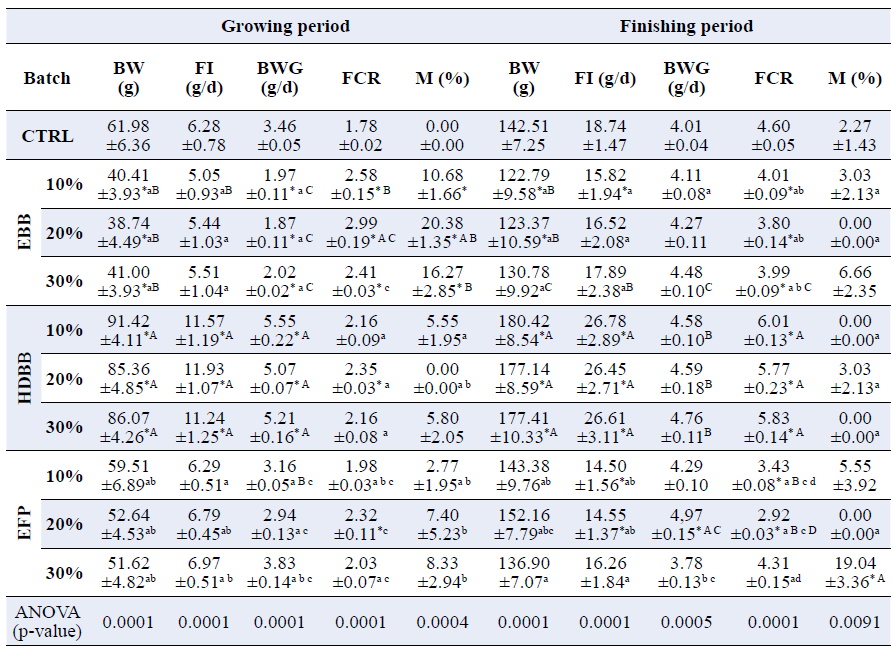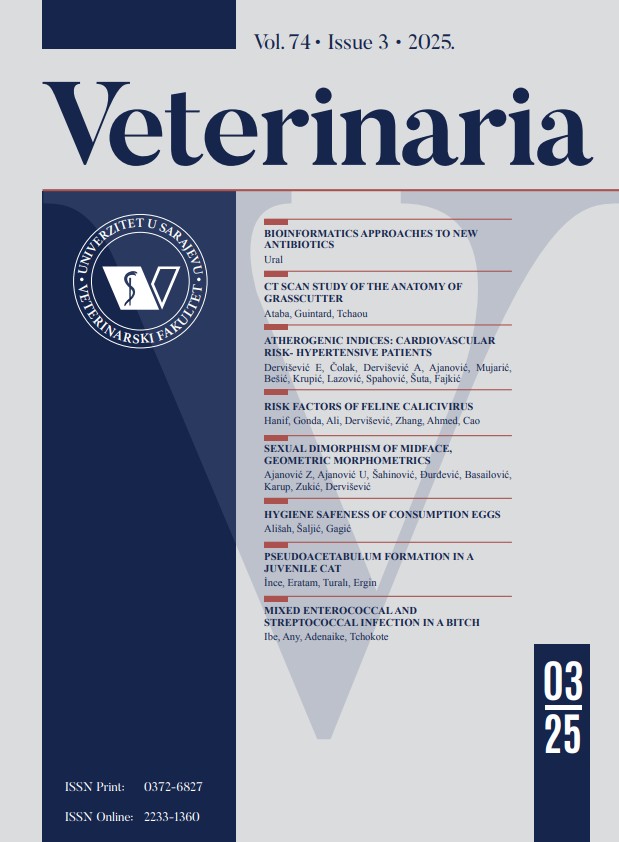Partial replacement of soybean meal by broad beans or field peas in Japanese quails’ diet
DOI:
https://doi.org/10.51607/22331360.2023.72.2.208Keywords:
Biochemical profile, Coturnix japonica, feed formulation, growth performancesAbstract
This study was conducted to determine feed formulas specific to the Japanese quail C. japonica by partially substituting imported
soybean meal with locally produced and cheaper protein-crops. Each formula contained either Entire Broad Beans (EBB), Heat-treated Decorticated Broad Beans (HDBB) or Entire Field Peas (EFP), each one at several replacement levels (10, 20 and 30%) of the whole formula. The results showed that feed containing HDBB led to better growth performances as compared to all the other formulas. Substitution with EFP recorded close effects to the control formula, but its high fiber and average protein contents represent a limitation to its incorporation at higher levels. EBB had adverse impacts, especially on growth performances. HDBB incorporation led to a significant hypoglycemia (batches 20% and 30%) (p=0.0039 and p=0.0049, respectively), and a considerable reduction of uremia (all batches) (p=0.0047, p=0009 and p=0.0227, in that order) with hypercalcemia (batches 20 and 30%) (p=0.0285 and p=0.0208. respectively), hyperphosphatemia (all batches) (p=0.0064, p=0.0163 and p=0.0027. respectively) and normal cholesterolemia, triglyceridemia, proteinemia, serum creatinine, glutamic-oxaloacetic transaminase (GOT) and glutamicpyruvic transaminase (GTP) amounts. EBB induced a very significant hypoglycemia (at 30% replacement) (P=0.0015), and hypouremia (batch 10%) (p=0.0019) with hypercalcemia (batch 30%) (p=0.0035), hyperphosphatemia (batch 20%) (p=0.0048) and normal cholesterolemia, triglyceridemia, proteinemia, serum creatinine, GOT and GPT. On the other hand, EFP had no effect (p>0.05) on the biochemical parameters of C. japonica except a non-significant decrease of uremia in batch 10% (p=0.49). Accordingly, it can be suggested that Field Peas and Treated Broad Beans could be possible substitutes to soybean meal in quails’ feed production.

Downloads
Published
How to Cite
Issue
Section
License
Copyright (c) 2023 Amel Bensalah, Amir Agabou

This work is licensed under a Creative Commons Attribution 4.0 International License.







